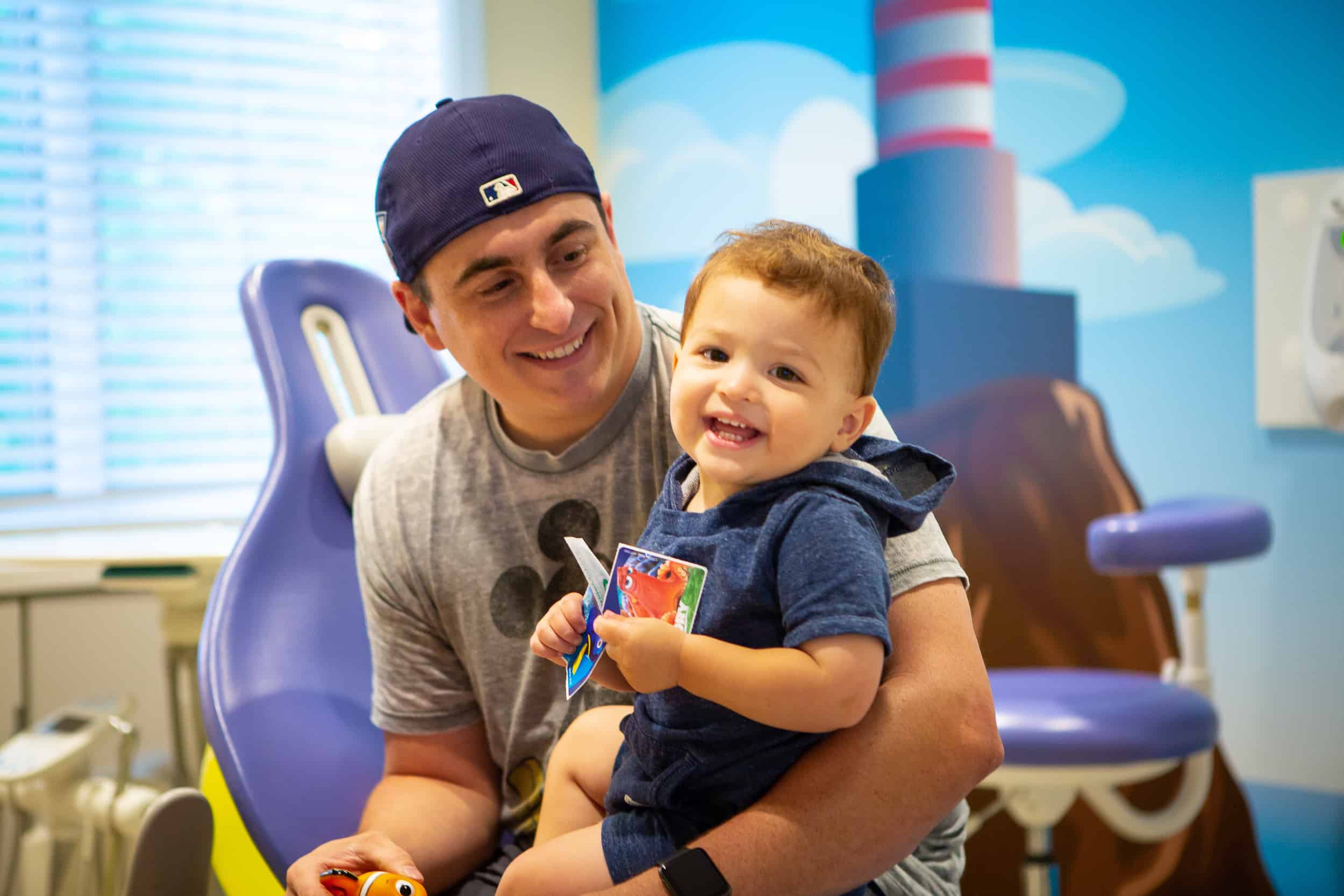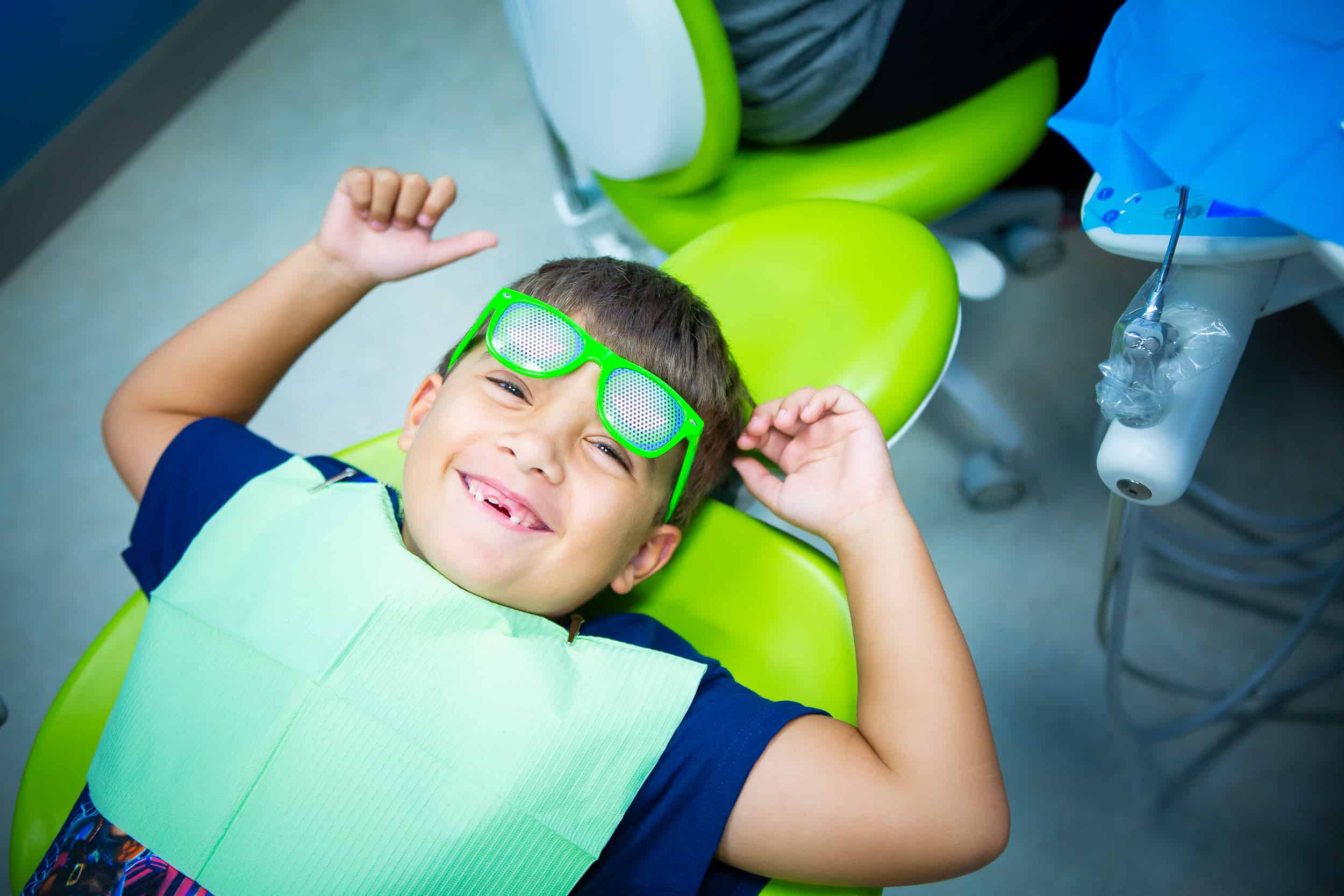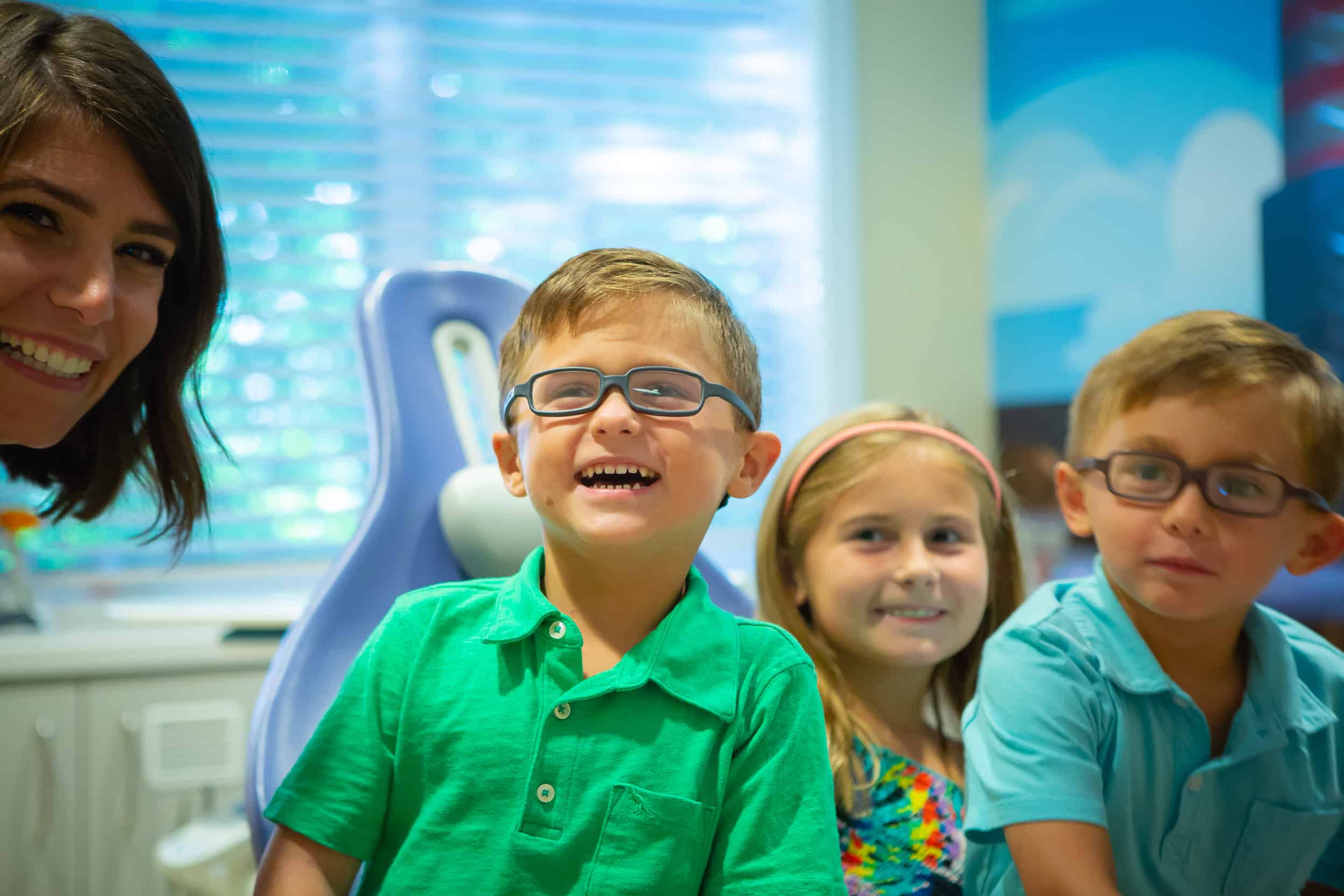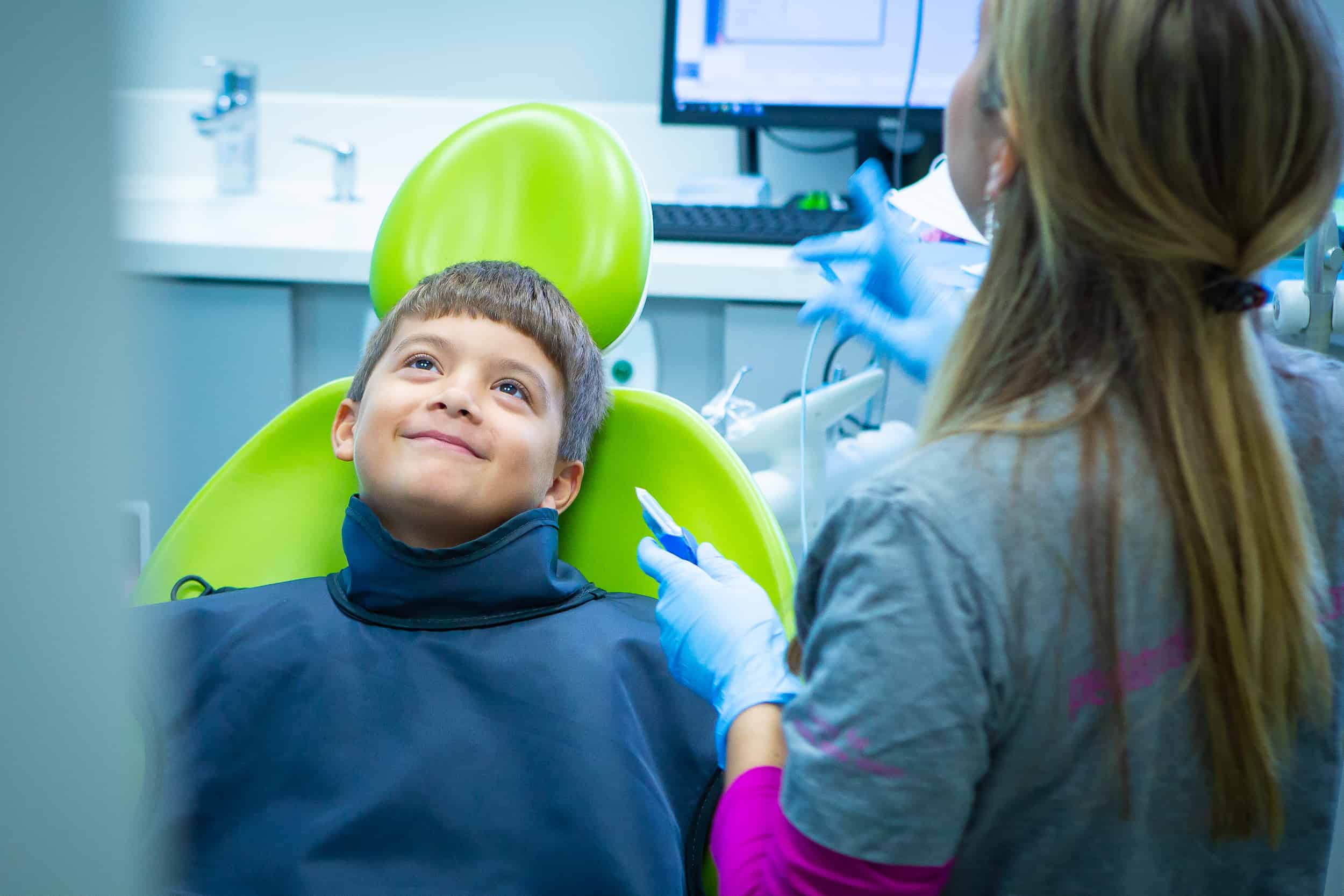If you’re a first-time parent, you probably have a million questions about your child’s teeth. When do kids lose their baby teeth? Do baby teeth have roots? Are pacifiers bad for baby teeth? Is it worth it to fill cavities in baby teeth? These are just a few of the many questions about baby teeth we hear from parents here at Centers for Pediatric Dental Health. We know parenting can be stressful in general, and keeping your child’s mouth healthy can be very stressful. We’re here to help!
We’ve compiled a list of some of the most common questions we get from parents, whether it’s their first kid or their third. There’s a lot to learn about your child’s oral health, but it’s worth it every time you see your kid’s beautiful smile.
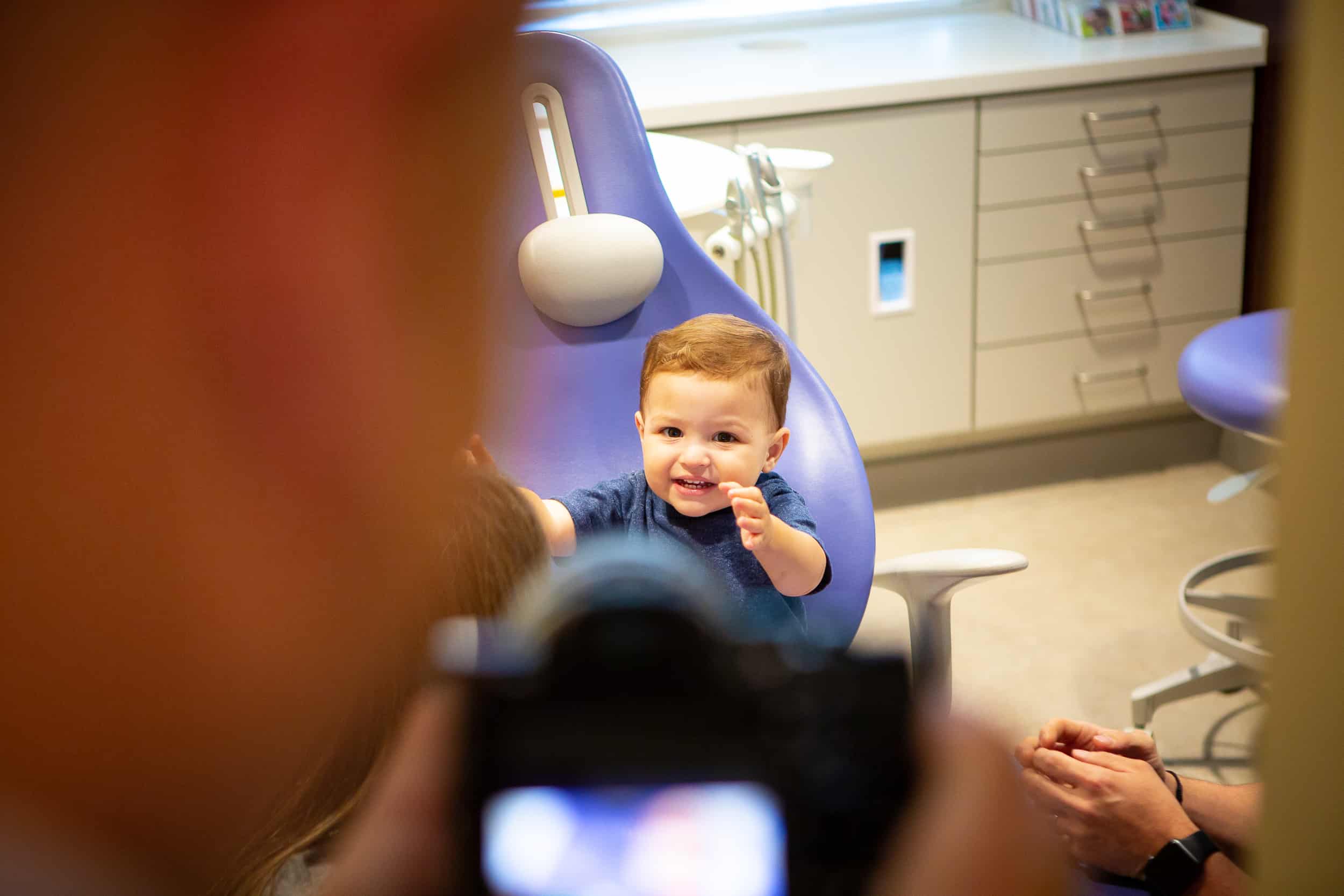
Anatomy of Baby Teeth
Parents know what baby teeth are, but they don’t necessarily understand why they’re there or how the whole baby-to-permanent-teeth thing works. The first thing to know is why children have baby teeth. In short, they need the teeth to chew, speak, and hold a space for the more permanent teeth. The permanent teeth will be able to chew all kinds of foods instead of just the soft foods children are used to eating. The baby teeth stick around until the permanent tooth is ready to emerge. Then, the baby teeth fall out. How does this happen? It’s related to a common question we get.
Do Baby Teeth Have Roots?
Permanent teeth have roots that fit into the jawbone and hold the teeth in place. But baby teeth fall out. So do baby teeth have roots? The answer is yes, but those roots aren’t quite the same as the permanent ones. These temporary roots dissolve, allowing the baby tooth to fall out so the permanent tooth can come up in its space a few weeks later. The tissue of the root is reabsorbed by the body to make way for the permanent tooth and its root.
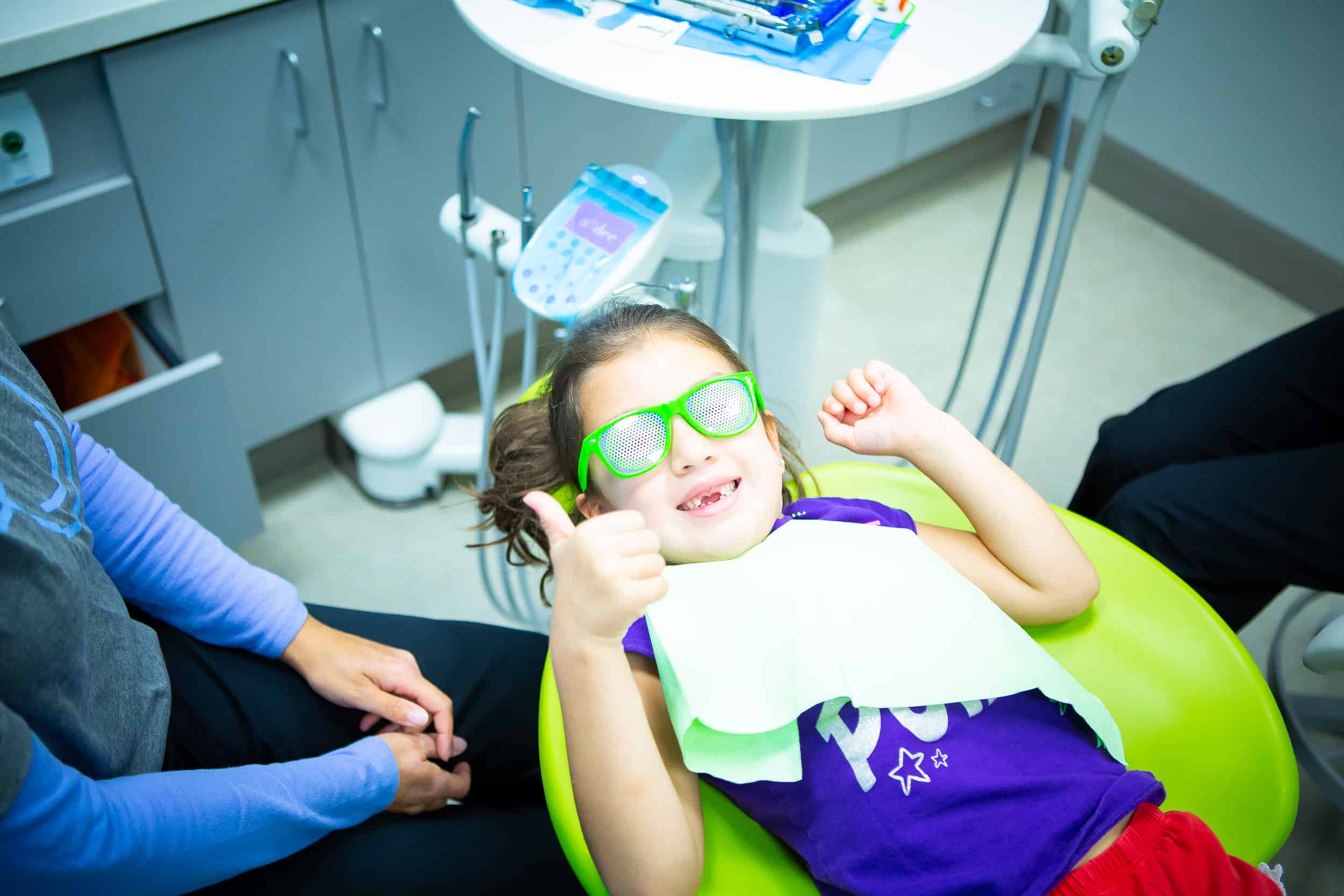
When Do Kids Lose Their Baby Teeth?
For most children, baby teeth come between six and twelve months. If your child has no teeth by 18 months, it’s imperative to see a dentist to see what could be causing the delay. The baby teeth will start falling out about age 6, usually, in the same order they came in: incisors, lateral incisors, premolars, molars. Essentially, your child’s teeth tend to come in and fall out from the front to the back.
The permanent teeth take longer to come in, partly because there are more. Children typically have 20 baby teeth and 32 permanent teeth. Your child should have almost all baby teeth out by puberty, with the last of the permanent teeth (the wisdom teeth) in by about age 18.
What If the Baby Teeth Don’t Come in on Time?
It usually isn’t a major problem if baby teeth start coming out a few months later than expected. There are a few exceptions, such as if the permanent tooth starts to come in before the baby tooth falls out. It could cause the permanent tooth to come in crooked or behind the baby tooth.
Baby teeth fall out in a certain order. When they don’t, it could leave the permanent teeth with less room to come in, which means they come in crooked or out of place. If the permanent teeth don’t come in when they should, the gap left for them could close. This leaves the tooth less space when it finally emerges, so it may come in crooked or out of place. If either of these happens, your child will need orthodontic treatment.
What Happens If the Permanent Tooth Doesn’t Come in on Time?
If the permanent tooth doesn’t come in, it may be because it didn’t form properly. You’ll need to visit the dentist to see what the probably may be through x-rays or digital scans. You may also need to have a spacer put in place to keep the space available for when the permanent tooth finally shows up.
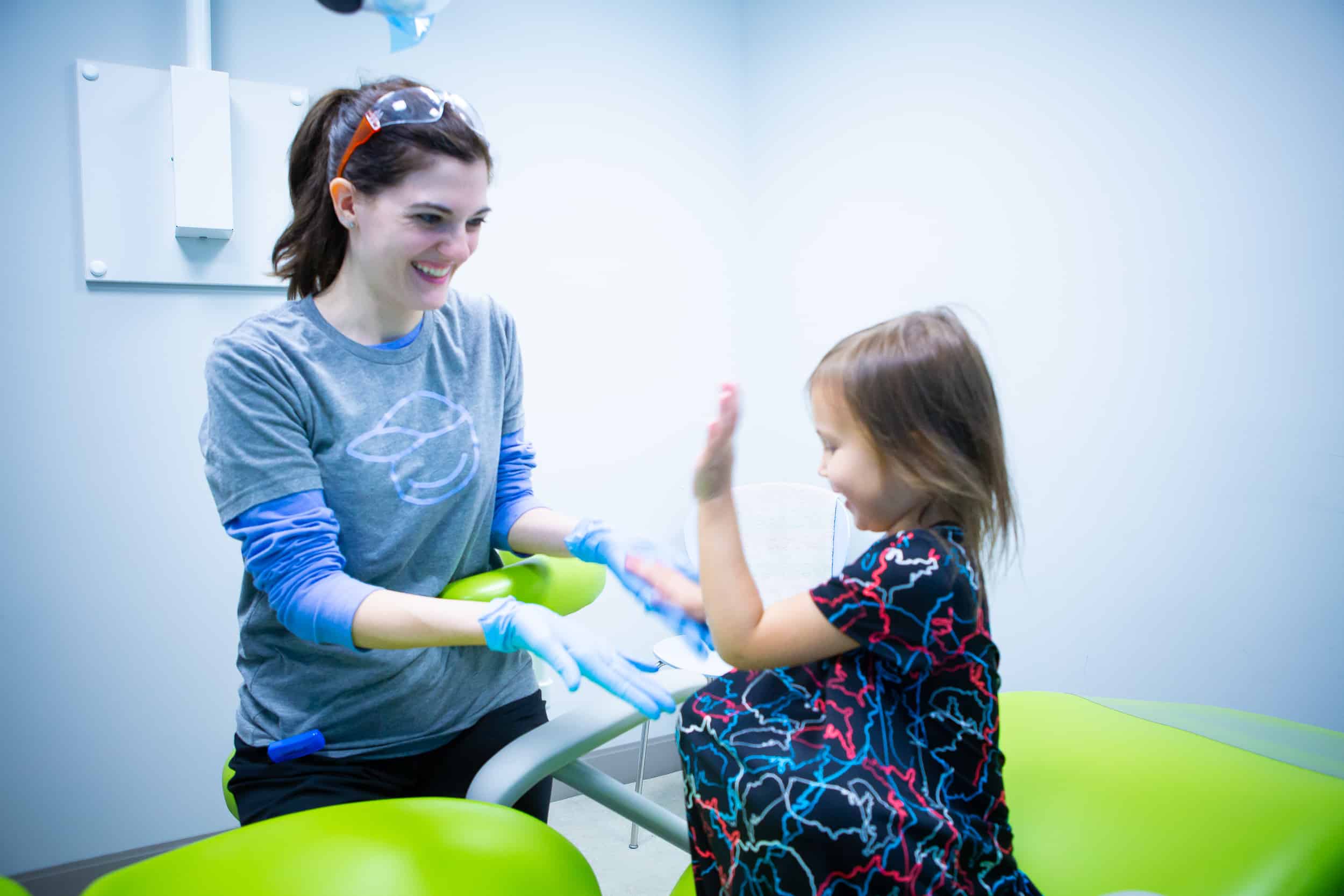
Why Do Babies Grind Their Teeth?
Babies and young children grind their teeth often, both awake and asleep. Bruxism, or teeth grinding, is common, with up to 30% of young children doing it. Why do kids grind their teeth? Sometimes it’s stress, but sometimes it is their reaction to discomfort as their teeth come in or because of a headache or earache. Usually, the child will grow out of the habit as teeth come in or fall out, so nothing needs to be done.
How to Stop a Baby From Grinding Teeth
As we mentioned, bruxism at an early age is relatively common and has little cause for concern. Most of the time, they grow out of it, so they don’t need the things adults need, such as bite plates to prevent teeth grinding.
In some cases, the bruxism is the result of a headache or earache. If these persist, it might be worth visiting the doctor to check that everything is alright. Sometimes, a child may have a problem with fluid on the ear or tonsillitis, which can cause earaches and lead to bruxism. The doctor can recommend solutions to stop the earaches, which will likely stop the teeth grinding.
Children may also grind their teeth as a result of stress. Try figuring out the cause of the stress for your child so you can find a way to reduce or eliminate that stress.
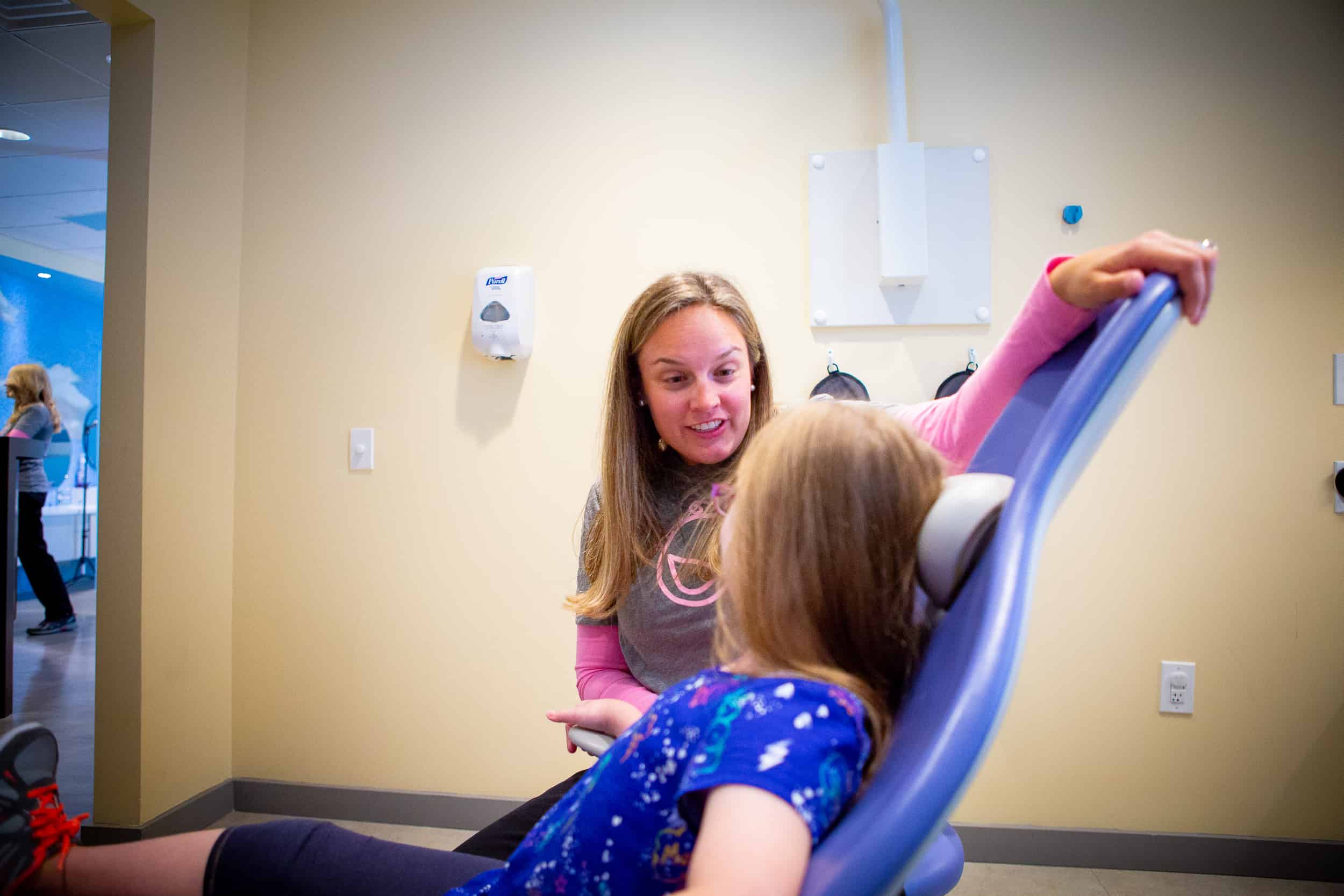
Do Baby Teeth Need Filling?
We often get this question: Do I need to fill my child’s baby tooth? If the tooth will eventually fall out, is it worth fixing cavities in baby teeth? The answer is simply YES. For starters, cavities can eventually cause pain and infection, which you certainly don’t want your child to experience. Cavities can cause your child to eat less or differently, leading to nutrition deficiencies.
If your child keeps getting cavities, an underlying problem may need to be addressed. Maybe your kiddo isn’t brushing or flossing properly. Perhaps there is a nutrition problem. Maybe there is a health issue. If the cavities keep coming, consult with your dentist as soon as you can before the underlying problem gets worse.
Do Pacifiers Mess Up Baby Teeth?
Pacifiers are a blessing for parents most of the time. They’re like little mute buttons for babies, aren’t they? While they’re great at first, prolonged pacifier use can harm your baby’s mouth. That’s why we recommend you break your child of the pacifier habit by the age of two. You can start sooner than that. Some doctors recommend stopping as early as six months, especially if your child is prone to ear infections.
Why stop using a pacifier? As your child’s mouth develops, it’s easily influenced by the shape of the pacifier. In other words, the pacifier can change the roof of the mouth, move the teeth into the wrong position, cause an overbite, and cause the jaws to become misaligned. That’s why the sooner your child can break the habit, the better off they’ll be.
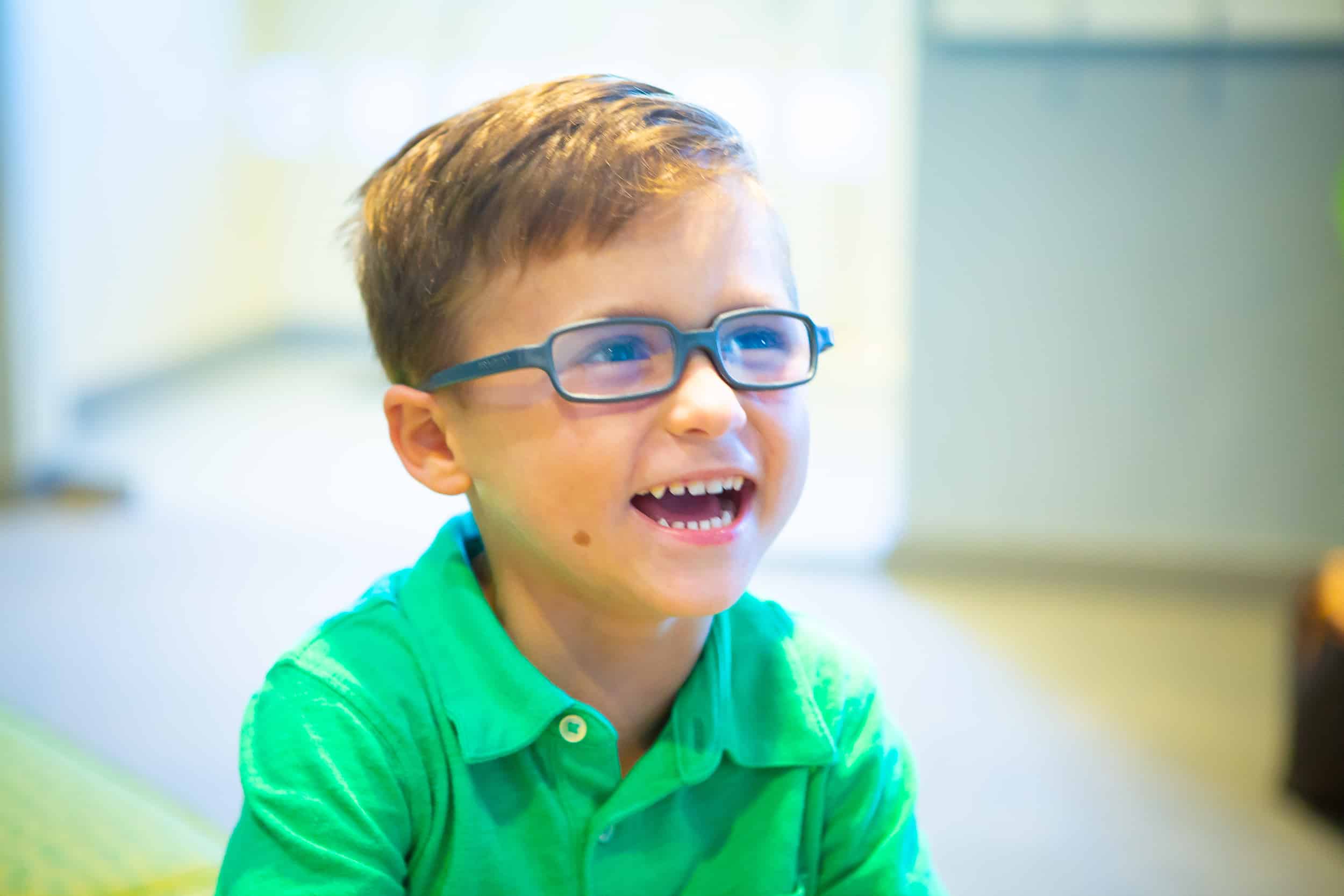
Does Thumbsucking Mess Up Baby Teeth?
Thumbsucking is just as bad for your youngster’s mouth as a pacifier. Moreover, thumbsucking is a habit that can extend into adulthood if not broken at an early age. It’s true! Studies show one in 10 adults sucks their thumb. Dentists and orthodontists recommend that your child stops sucking their thumb before age three.
As with pacifiers, thumbsucking causes the roof of the mouth to become misshapen. Not only does this affect your child’s bite, it can also push into the sinus cavity and cause breathing problems later on, from snoring to sleep apnea. Thumb sucking can cause an overbite or deep bite, misalign the jaw and make the teeth crooked. Sucking the thumb past about age three could mean expensive orthodontic treatment later.
When Do I Start Brushing My Baby’s Teeth?
You may think you need to wait until your child has a few teeth before you start brushing them. Not true! As soon as that first tooth erupts, it’s ready for brushing. In fact, oral hygiene should start before that when your child is still an infant. You should be wiping your child’s tongue, gums, and cheeks clean after feedings to keep the bacteria down.
Babies just starting to get teeth don’t need a toothbrush or toothpaste yet. Instead, they make small rubber brushes that fit on your finger. You can use that to clean your child’s teeth or gums. It prepares the child for toothbrushing with toothpaste later.
Toothpaste on a small, soft-bristled toothbrush can start about age 2 with a tiny, pea-sized amount of toothpaste. You want to make sure your child learns to spit out the toothpaste rather than swallow it.
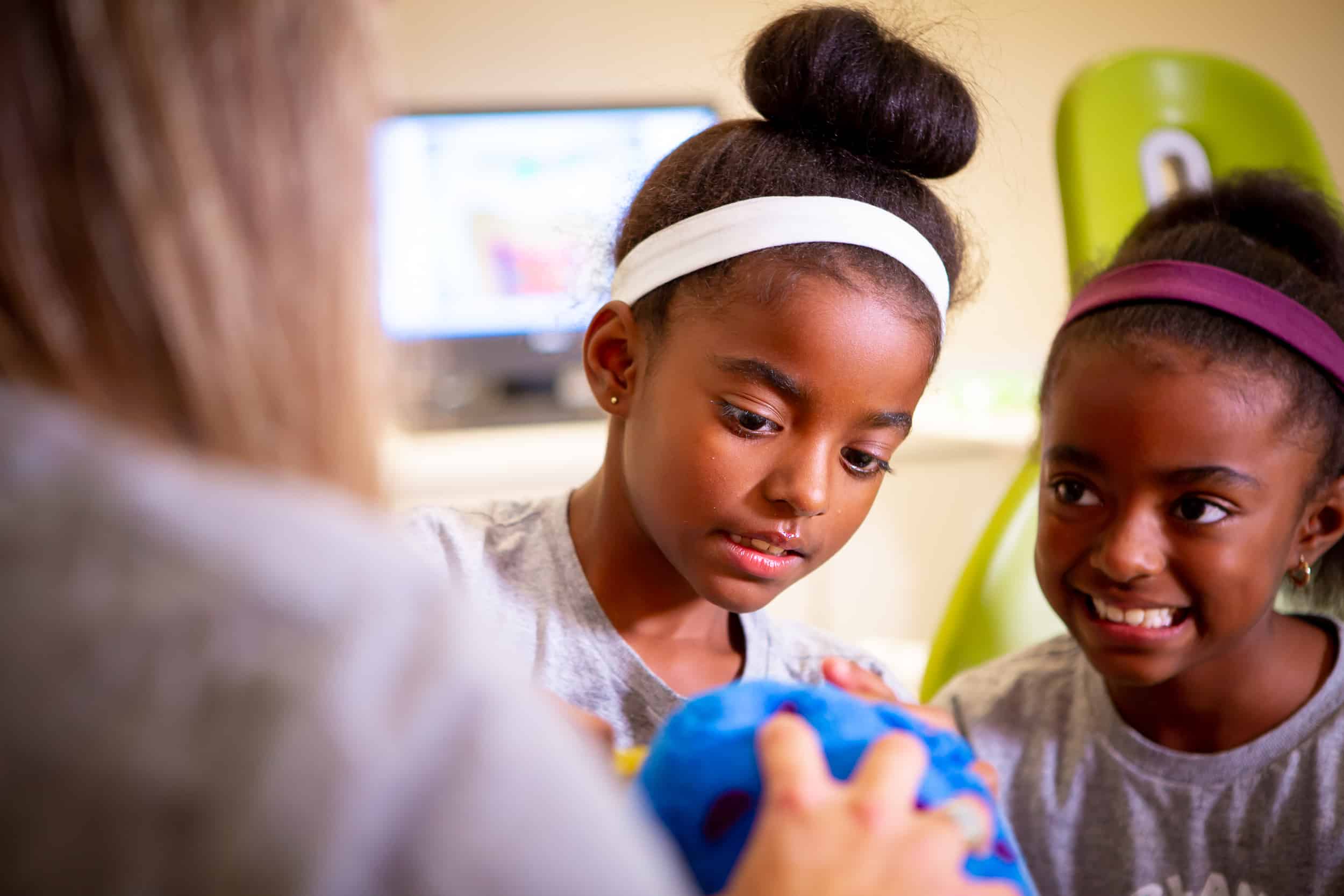
Healthy Baby Teeth in South Jersey
There’s a lot to consider when it comes to your child’s oral health. With the right routines and guidance, your child can grow up with a healthy, beautiful smile that will last a lifetime. The Center for Pediatric Dental Health is here to help guide you and keep your kiddo’s mouth healthy and happy. Schedule an appointment with us if you’re in the areas of Sicklerville, NJ, Mount Laurel, NJ, or Woolwich Township, NJ. We’re happy to help!


